Uganda
Through radio programs of all types, from music, to Bible studies, to counseling, Words of Hope Uganda is working in over a dozen languages to minister to the whole person.
Uganda is a hard place. Though Christianity is popular in this country, extreme poverty and lack of education make it nearly impossible for churches to adequately disciple those who are coming to know Jesus. Words of Hope’s Ugandan Director explains that while many are born into the faith, they often starve spiritually because no support structure is in place for their growth. Nominal Christianity is common. In fact, many Ugandans who self-identify as Christians simply know that they are not Muslim.
Lack of proper education and discipleship allows Ugandans to be swept up into false wealth-gospel belief systems. Many also mix older tribal religions with Christianity in their search for truth. With the support of generous donors, Words of Hope’s is empowering Ugandan pastors and churches to effectively nurture their people in the life of Christian discipleship. In the midst of this hard place, radio is bringing truly life-changing good news.
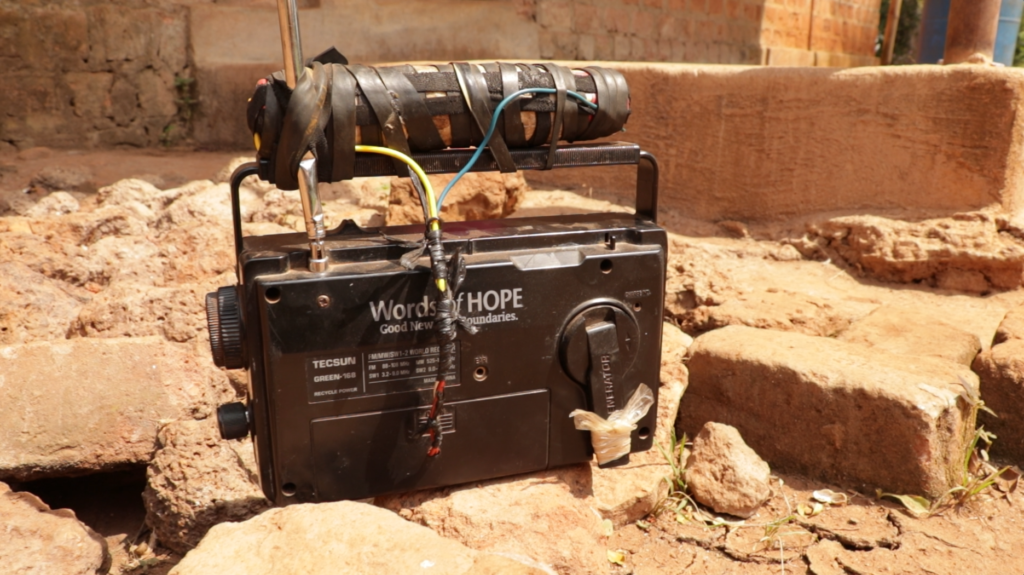
“Since you began this program, we feel that we learn more about God than before. These other preachers just tell us how to get what we want, but you have given us what we need to know so that we can grow.
Languages
Acholi
In the Acholiland region of Northern Uganda, the native language is Acholi. Although school children learn English, Acholi is still considered their heart language. Many older people only understand Acholi. The programs aim to provide hope and counsel for those suffering the spiritual and emotional aftermath of war, in addition to supplying practical biblical instruction for those who are illiterate.
Alur
The Alur tribal language is spoken by the Alur people who live in northwestern Uganda and northeastern Democratic Republic of the Congo. The population of Alur speakers is approximately 2.5 million. The Alur people subsist primarily from agriculture, growing millet, cassava, spinach, pumpkins, maize and sweet potatoes.
English
The English language did not become commonly used until the colonial period. When Uganda was colonized, English was introduced, both through missionary work and in schools. When Uganda gained independence in 1962, English was maintained as the official language since it was so widely used, and because no tribal languages are spoken by all people groups living in Uganda. Ugandan English radio programs are aired throughout the country.
Karamajong
Karamajong is a Nilotic language spoken by herdsmen living in northeastern Uganda.
Kuku
Kuku is a language spoken by the Kuku people mainly the in Kayunga District of Uganda. Others are found in the districts of Luweero, Nakasongola, Bombo, and Kampala, and in South Sudan. They have never heard their language on the radio. The radio has helped many to hear the Gospel for the first time, receive faith in Christ, and even moved Kuku people to translate the Bible into their own language. The program has also helped Kuku people find each other, as most are scattered around the country without knowing others of their own people group.
Kup-Sabiny
The Kup-Sabiny language is spoken by the Sabiny people. Most of the 230,000 Sabiny people live in Kapchorwa District, a mountainous region in Eastern Uganda. The region has fertile soil, and many of the Sabiny people make a living raising cattle and cultivating beans, wheat, corn, and potatoes. They sell their produce when they are able, but poor roads and mountainous terrain make it difficult for them to bring their produce to the market. More than 60% of the Sabiny people live in poverty.
Luganda
The Luganda, or Ganda, language is a Bantu language spoken mainly by the Baganda people in the African Great Lakes region. It is one of the major languages in Uganda and is spoken by more than 10 million people.
Lumasaaba
Mbale Diocese in Eastern Uganda bordering Kenya has provided for the addition of a new broadcast in the Lumasaaba language spoken by about two million people. This typifies the long-range expansion strategy that Words of Hope Uganda is pursuing. Where applicable, these diocesan partnership include field-based program production in a widely spoken local language.
Luo
The Luo language is spoken by the Luo people, spanning from southern Sudan to southern Kenya, and into northern Tanzania and the Democratic Republic of the Congo.
Rufumbira
Rufumbira is spoken by the Bafumbira people in the Kisoro District of Southwestern Uganda, under the foot hills of Mount Muhavura.
Rukiga
The Rukiga language, also known as Kiga, is spoken by about 1.6 million people in the Rukiga District of Uganda.
Rukonzo
The Rukonzo language (also known as Rukonjo, Olukonjo, Olukonzo, Konjo or lhukonzo) is spoken by the Konjo people of Uganda and in the Democratic Republic of the Congo.
Runyankole
Runyoro
The Runyoro language is tonal in nature, meaning that the tone of voice used often determines the level of politeness and the actual meaning of an expression. As tone ascends, the words spoken are considered to be less and less polite, which means that the majority of Runyoro speaking people talk in lower, softer voices.
Rutooro
The Rutooro language is spoken by the Toro people group who live in Western Uganda. Toro people typically exchange lengthy spoken greetings with each other. It is considered culturally rude to merely say “hello” in passing. The type of greeting that is appropriate in a situation varies depending on gender, age, and other variables. Toro people are also assigned nicknames, or empaako, at ceremonies held shortly after birth. The empaako is chosen by elders of the tribe and carries a specific meaning, such as “intelligent” or “caring.”
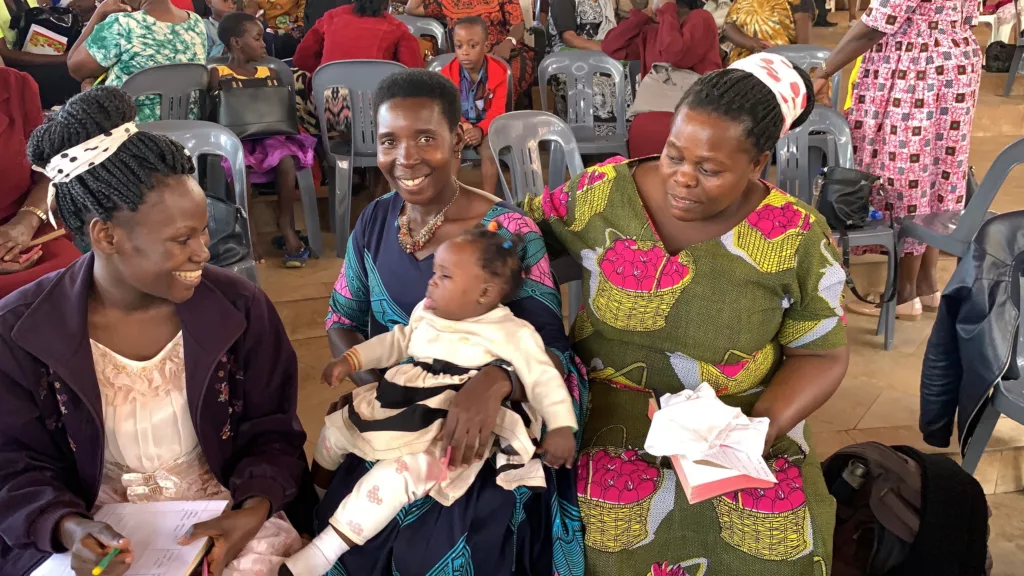
Prayer Requests
- Pray for listeners to be transformed by the gospel programming.
- Pray that every new believer will be connected to a local discipleship group.
- Pray for steady electricity in the remote regions where we do ministry.
Stories from Uganda
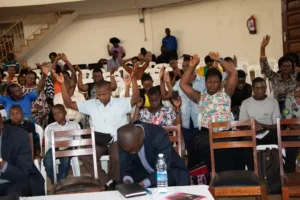
What is Martyrs’ Day in Uganda?
In the country of Uganda, June 3 is celebrated as Martyrs’ Day. You may not have heard of this day, but it will help you pray for the church in
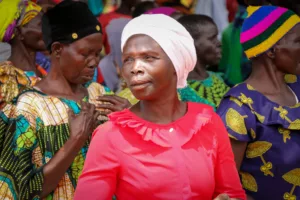
Addiction Recovery in Uganda
One of the programs that your donations to Words of Hope support is in the country of Uganda. As listeners there responded to radio, YouTube, and TV programming, it became
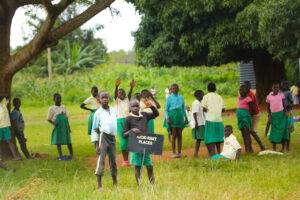
The Journey to Nebbi
In which Daniel, Jon, and Megan travel to northwestern Uganda to visit a new Words of Hope radio station, and nearly get washed away enroute. The day was mild and
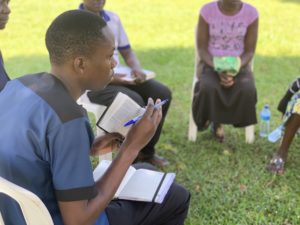
Young Leadership in Uganda
Recently, one of our Ugandan language producers received a phone call from a listener who told him that, while she had been born into a Christian family, her father had
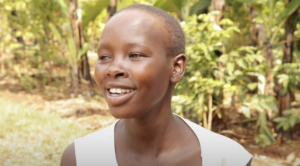
Women Ending FGM
Keren sees the programs as a great way to teach listeners about Christianity, but also about business, health, and family issues. One of the biggest concerns in these remote villages is Female Genital Mutilation, or FGM.
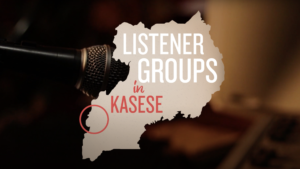
Listener Groups in Kasese, Uganda
In Western Uganda, people meet together in homes, under trees, or in churches to listen to and discuss the radio programs. In just a few years, dozens of Messiah RADIO
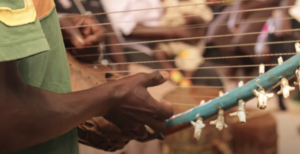
Joshua Abure – Heavenly Reward
Joshua Abure shares a song with the congregation at Kawolokota Church of Uganda. Joshua is blind and has mastered the adungu, a nine-stringed bow harp. Joshua’s music is often recorded
